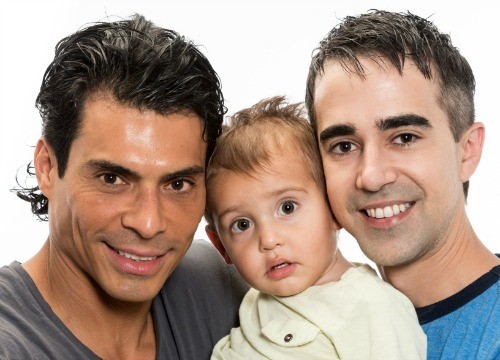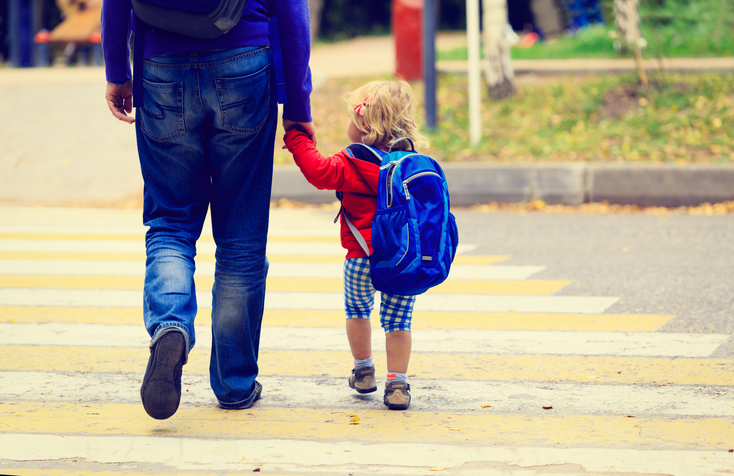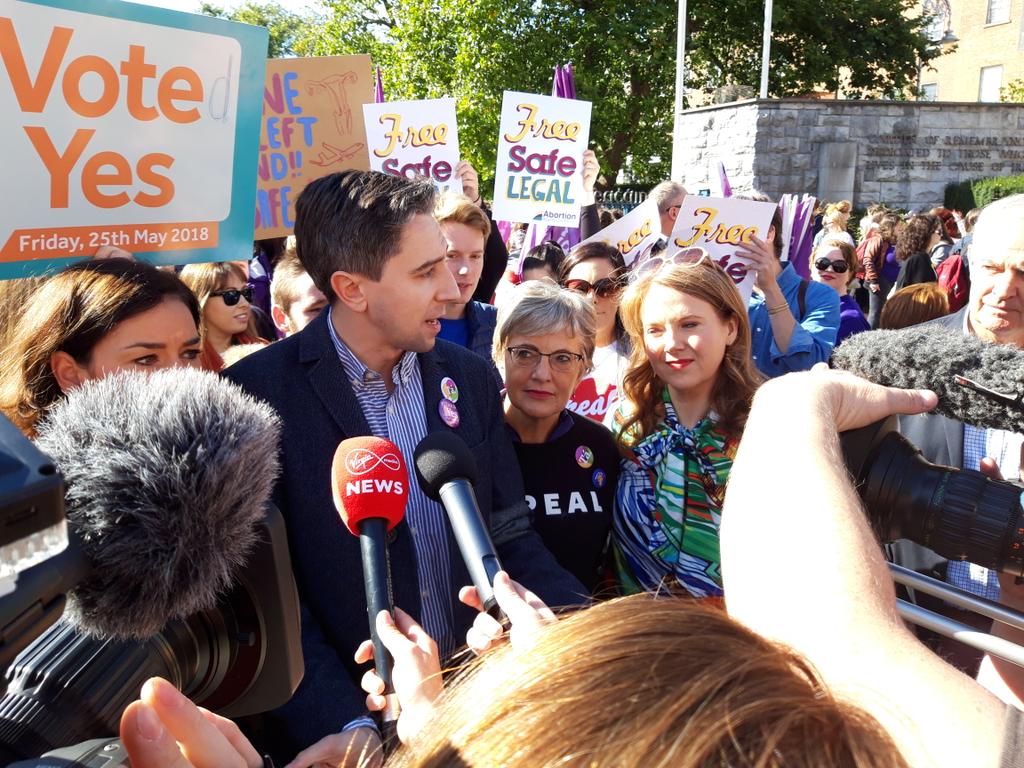
The Department of Education is set to consider whether the law should be changed to force schools with a religious ethos to teach sexual practices and beliefs contrary to their vision of the human person.
The move comes after a report by the Oireachtas education committee proposed that the sex ed curriculum should be transformed by radical new gender theories and include information about LGBT sexual relationships.

Ten days from the introduction of abortions in some GP surgeries in Ireland, guidelines on properly administering lethal abortion drugs are still not complete. Yesterday, GPs were issued ‘interim’ guidelines by their professional body, the Irish College of General Practitioners (ICGP). The College is silent on the issue of doctors who conscientiously object to abortion having to refer women to doctors who will prescribe the abortion pill.
According to the Irish Times, the guidelines “lack detail in a number of key areas which, the document says, remain ‘in development’. These include detailed referral pathways to secondary care, details on Anti-D availability, and notification and certification forms.”
The ICGP says it has written to Minister for Health Simon Harris over its concerns at the “lack of clarity” around referral pathways to secondary care, when this is required, throughout the country.
The ICGP has been at the centre of a storm of controversy over its refusal to meet with doctors protesting the inadequate provisions for conscientious objection. There are also massive concerns over how GPs are meant to respond in cases where the abortion drugs trigger major complications for the mother.

The Irish Times has been roundly criticised for posting a headline that inaccurately claimed 75% of GPs had signed up for an abortion hotline. In fact, only 200 GPs out of 3000 had agreed to do abortions and that only 75% of those 200 agreed to their names being used in an abortion hotline.
Cora Sherlock of the Pro-life Campaign commented on twitter: ‘Shouldn’t this read “200 GPs out of approximately 3000 have signed up”. The 75% refers to that 200 which means 150 out of 3000 GPs in Ireland have signed up. So that’s 5%, not 75%. Please correct this misleading headline so it actually reflects the facts.’
The Irish Times subsequently scrubbed all trace of the original headline. However, the social media they had used to promote the article continued to have the same inaccurate headline.

Catholic and other faith school could be forced to teach children an LGBT course under recommendations from the Oireachtas Education Committee. According to The Irish Independent, a draft report calls for a radical overhaul of Relationships and Sexuality Education so that both secondary and primary school children would be taught about LGBT issues “without distinction as to their heterosexual counterparts”.
It also recommends changing legislation to ensure that even denominational schools, such as those owned by the Catholic Church, are required to teach the new programme – even though it would be against their ethos.
The report says the new RSE programme should be “fully inclusive of LGBT relationships and experiences, including sexual orientation, gender identity and the spectrums thereof”.
It adds: “Consideration should be given to the inclusion within curriculums of LGBT specific sexual health issues and the presentation of LGBT relationships without distinction as to their heterosexual counterparts.”
It also calls for the introduction of a system for recording incidences of homophobic or transphobic bullying in schools. Primary and secondary teachers would also have to provide classes on sexual consent under the reforms.
A curriculum on sex education for people with intellectual disabilities, including classes on sexuality and contraception, is also proposed.

The term “fathers” is being deleted from antenatal guidelines in the UK to be replaced by the more general term “birthing partners”. The move has raised concerns as a think-tank published a report showing many men feel their roles as fathers has been downgraded.
The Centre for Social Justice (CSJ) highlighted one NHS website headlined “your pregnancy and baby guide” which listed the word “father” once as one of the options for a “birthing partner”, along with “a close friend, partner, or a relative”. The think-tank said it was an example of a growing trend and noted that the term “birthing partner” – the person who supports the mother in the delivery room – is used 14 times.
The Fatherhood Institute has also highlighted the habit of removing the “father” reference in NHS clinics. It noted that 95 per cent of parents are in a couple relationship, and 95 per cent register the birth together. “Yet despite the overwhelming presence of the biological father, the term ‘woman’s partner’ or ‘mother’s partner’ is commonly used in maternity services. This defines the baby’s father solely as a support person and does not recognise his unique connections (both genetic and social) to his infant.”

A jailed Chinese pastor has denounced an ongoing crackdown on Christian churches as an unjust persecution. The pastor and his wife were arrested alongside 100 church members and detained in southwest China on Sunday, accused of subverting State power, which can carry a prison sentence of up to five years. Two days after his arrest, church members published a letter he had written in September and instructed them to publish if he went missing for more than 48 hours.
In it he wrote that he respected “the authorities God had established in China” and that his aim was not to change institutions. However, he called the government’s persecution of the Church “greatly wicked” and an “unlawful action”.
“As a pastor of a Christian church, I must denounce this wickedness openly and severely. The calling that I have received requires me to use non-violent methods to disobey those human laws that disobey the Bible and God,” he wrote.

Preparations for the Government’s vast new abortion regime have ramped up over the last few days after the Seanad voted late Thursday night to pass the abortion bill. Not a single amendment was made to the bill that had already been passed by the Dail so it now goes to the President for his signature so as to turn it into law. Dr Peter Boylan tried to reassure pro-choice voters in a radio interview Friday that abortions would be available from the Minister’s deadline of January 1st.
Doctors too began receiving training over the weekend with Minister for Health Simon Harris opening a training day for more than 60 GPs. The ICGP will provide similar training courses ‘online’ this coming week.Only a small minority of GPs wish to provide abortions and hundreds have a strong conscientious objection. They will not prescribe abortion pills or refer women to doctors who will because abortion ends the life of one of their patients.
Clinical guidelines are set to be published only today by The Institute of Obstetricians and Gynaecologists, and the Irish College of General Practitioners (ICGP). They will circulate guidelines to all their members as part of the preparations for the new law.

Surrogacy laws in the UK are ‘outdated’ resulting in couples being more likely to go abroad to access it, University of Cambridge researchers have claimed. In Britain a surrogate mother can be paid ‘reasonable expenses’, usually running into thousands of pounds to have a baby for someone else, but cannot be seen to profit from it. Some Britons avail of commercial surrogacy overseas which can cost up to $100,000 in places like California. Irish people also sometimes go abroad to avail of commercial surrogacy. Many countries in Europe ban commercial surrogacy and several ban it in all forms.
A new study published in the journal ‘Human Fertility’ is the first to compare the experiences of those who carry out surrogacy in the UK with those who go abroad. The research, led by Dr Vasanti Jadva at the Centre for Family Research, University of Cambridge, in collaboration with NGA Law and Brilliant Beginnings, surveyed over 200 people who had either already had a child through a surrogate, were in the process, or were planning a surrogacy arrangement. ‘Brilliant Beginnings’ is a surrogacy agency.
“UK surrogacy law is outdated and struggling to cope with the strain of modern surrogacy experience both in the UK and globally,” said co-author Natalie Gamble.
They found that the vast majority of couples who go to the US do so because of its clearer legal framework, including the fact that legal parenthood can be transferred from the birth of the child. Surrogacy creates up to three mothers; the birth mother, the egg-donor mother and the social mother, that is, the woman who raises the child. In some cases, the child will be raised by a single man or a male same-sex couple.

Doctors walked out of a recent Irish College of General Practioners EGM due to ‘disgust’ at the refusal to allow votes turning what should have been a genuine consultation into a mere ‘talking shop’. Regular Irish Medical Times columnist Dr Ruairi Hanley has written of his own experiences at the meeting and said the reason for the mass exodus was that members were not allowed to propose motions and vote on them, despite speaker after speaker requesting it. In effect, he said ‘democracy was suspended’.
‘The ICGP declared they were there to listen and debate. Yet in truth, an EGM without motions and without voting is a talking shop, nothing more. I also found it somewhat chilling when I listened to someone (who I don’t remember winning an election) tell us that, as paying members, we were simply not allowed to exercise basic democratic rights’, he wrote.

A small but growing minority of GPs have signed contracts with the HSE so far to provide “abortion services” from January. According to the Irish Independent, the number might run into hundreds out of the roughly 4,000 GPs in Ireland.
The compliant GPs are returning signed contracts despite the fact that clinical guidelines are still only being drafted. At the same time, GPs who returned an expression of interest in delivering the “service” are being urged to send back a signed contract by tomorrow. This would allow the HSE to send them an information pack with important details of where they would secure the drugs needed for medical abortions.
The HSE wrote to those stating: “if you could return your contractor details and acceptance form on or before Friday, December 14, it would be greatly appreciated”.
The correspondence states that this will allow “the HSE to provide you with the stock order forms for this service so that you can order the medicines from your community pharmacy of choice in advance of the commencement of the service”.